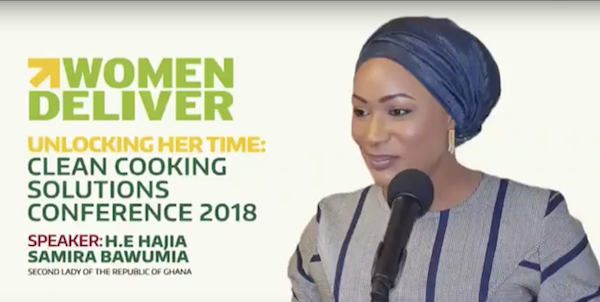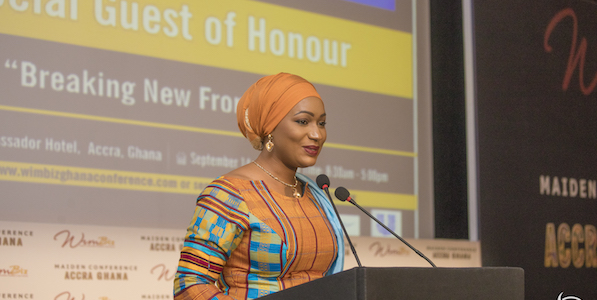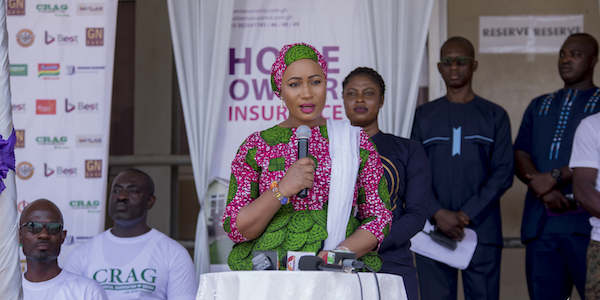Mr. Chairman, Dr. Pinamang Appau, Director of Accra Psychiatric Hospital, Dr. Samuel Asiamah, Ag. CEO of Korle-Bu Teaching Hospital, Dr. Roberta Lamptey, Ag. Director of Medical Services of Korle-Bu Teaching Hospital, Ag. Head of Korle-Bu Polyclinic, President of WONCA Africa Region, Executives and Members of the Society of Family Physicians of Ghana (SOFPOG), Physicians and Health Workers, Distinguished Guests, Ladies and Gentlemen. Good morning.
It is an honor to be called upon to be the Special Guest for this all-important launch of the world “Family Doctor Day”. The theme for this celebration is not only appropriate, but also timely. Timely because the upsurge of the unfortunate menace called suicide, and its co-jointed twin best described as depression, have taken a sudden worrying and dangerous trend in our country. We are all called upon to contribute to finding urgent and lasting solutions that will help ground this disturbing and dangerous trend.
In the last few months, a week did not pass by without a reported suicide incident in one part of our country or another.Such an alarming rate in a country with a modest population as ours is worrying. But even more worrying is the sad fact that many of the victims have been the youth – our country’s future. Ladies and gentlemen, there can be no more reason for a collective effort against a dangerous canker than this – for it stares us all in our faces.
The causes and risk factors are many, and the experts say it ranges from undiagnosed mental illnesses to a rather poor state of our social support system, which may not be as close knit as it used to be a couple of years back.
Suicide is an issue of global concern, but research reveals that about 78 % of suicide cases occur in low and middle-income countries. Since January this year, a total of 14 people are reported to have committed suicide in Ghana and no social class or gender has been spared.
Women are more likely to have attempted suicide but men are about four times more likely to succeed. Additionally, women are more than twice more likely to become depressed than men. Research estimates that, for each adult who commits suicide, there have been more than twenty others who have attempted or entertained seriously the thought of suicide. This is truly troubling.
The CEO of the Mental Health Authority in Ghana has associated the lack of social support system as a major reason why people commit suicide in our country. The rich sense of community that held us together as a people a few years ago and allowed us to freely discuss our problems with others is eroding. We have become too individualistic and overly protective of our personal interests. Many of our educational institutions also lack functioning counseling units to provide the necessary psychological support to a young generation of people who are exposed to the troubling dangers of the internet and social media, where they pick up vices ordinarily unknown to the Ghanaian society.
My heart continues to bleed about the sad recurrence of suicide incidents in our country. I empathise with the parents, who have to carry the burden of society’s stigma whilst enduring the pain the loss of their children brings on them. The act of suicide in itself is a product of many hours, weeks, months, and sometimes years of thought, planning and consideration, for most of our youth who fall victim to it, and we should not be in a hurry to lay the blame on the footsteps of one particular person or institution or system. It is a multifaceted problem that begs a collective commitment and effort to solve.
As a mother, I can speak to the very stressful conditions under which we have to raise our children to become responsible adults. The plight and distress of working mothers, some of whom may be single, cannot be overemphasised. Socio-cultural and individual experiences influence parental and adolescent behaviours, but the impact suicide has on those left behind is an untold story of agony, which is very far-reaching and devastating by any measure.
When a person loses a loved one, society offers its sympathy, and becomes filled with compassion for the loved ones of the deceased. The story is not quite the same when it comes to suicide. Suicidal deaths have stigma attached to them and society is not always as compassionate as it otherwise would be. There is rather a tendency to blame someone; and more often the mother or the father or the guardians of the suicide victim bears the brunt of this blame.
A mother who has lost her child through suicide will feel extreme guilt; guilt she may have to live and battlewith for the rest of her life. Guilt, stemming from a deep-seated and often erroneous conviction that she could have prevented the suicide. When this heavy guilt hangs over you,it affects not only your work but also your behaviour, especially in relating to other people. Mothers may tend to shy away from people because they believe they are being judged by society for the suicidal death of their child. This in turn leads to depression and in some cases, have the mother of such a victim take away her own life. Ladies and gentlemen, this is how sad the situation can be.
There is also the issue of feeling like a failure. When we raise our children we aspire to give them all the love they can ever hope for, all the love they can ever enjoy and all the best guidance they can ever need. Loving someone you brought into this world comes naturally to parents but to mothers more especially. However, when you lose a child because that child probably felt unloved, or thought they could not share their problems with you, you begin to feel like a failure.
Mr. Chairman, there is also the issue of anger and resentment towards the child who took his or her life for failing to consider the misery he or she has put his or her parents through. This should not be the case because the issue of suicide has its roots in mental illness and therefore there is no place for anger or resentment towards the suicide victim. Losing a child is the worst thing a parent can ever experience. It is even more horrible and traumatic if it happens through the medium of suicide.
As we think through the issues of suicide and depression, and reflect on the general wellbeing and safety of our people, let us all take up the charge of fighting suicide together. We must engage one another more; we must be embracing of each other in times of need and joy; we must keep an eye on one another and draw attention to unusual behaviours; we must help parents and families who go through this sad problem and above all, we must all stand side by side and show deep love to a mother who loses her child to suicide. If her pain is society’s pain, society will work together to prevent its future occurrence.
Distinguished ladies and gentlemen, we cannot discuss suicide and depression without making mention of the important role family physicians play. They serve as the primary care physician and the front-liners of the healthcare system. They should be encouraged to practice what they truly are – FAMILY DOCTORS.
They manage, to a broader extent, not only the individuals but also the family in its entirety. They touch all the factors that contribute to mental health illness in our country and I hold a firm belief that if our health care delivery system is to improve and become much more impactful, then we need to train more family doctors. Their impact transcends individual concerns into generations, both before and after, and this is the reason I am happy to be part of the launch of the World Family Doctor Day-2017.
I would like to use this platform to advocate for a more holistic health care delivery system in Ghana. A system that focuses not only on the physical wellbeing of an individual but also the emotional, psychological and mental wellbeing as well.We need to improve existing mental health facilities. There is also an urgent need to resource these facilities with personnel who have the requisite expertise. We need to establish functioning counseling units not only in schools but also at workplaces. I believe a holistic approach to the health care delivery system in this country would inure to our collective benefit and ensure that mental health awareness is treated as an integral part of our health care delivery system.
Mr. Chairman, on this note, I hereby declare the World Family Doctor Day duly launched, and urge all institutions, organisations, businesses, religious groups, to be fully associated with its celebration. I am grateful to you for inviting me, and I hope that we can work together more closely in the near future.
God bless you all, God bless our nation and make her great and strong.
Thank you.







